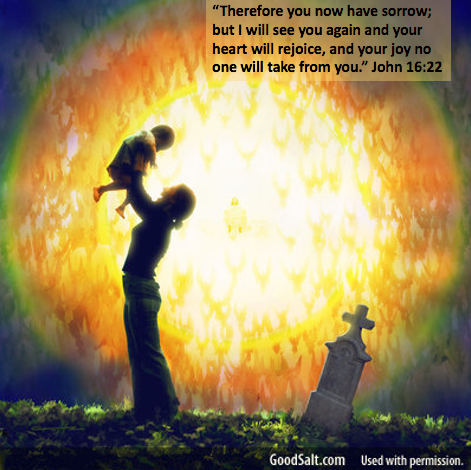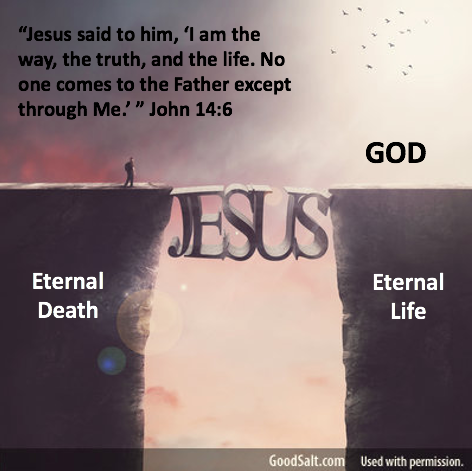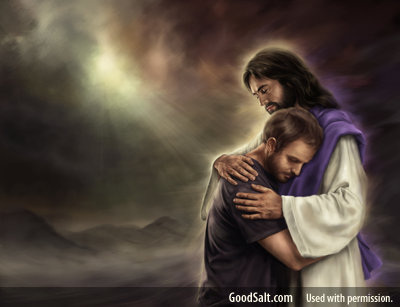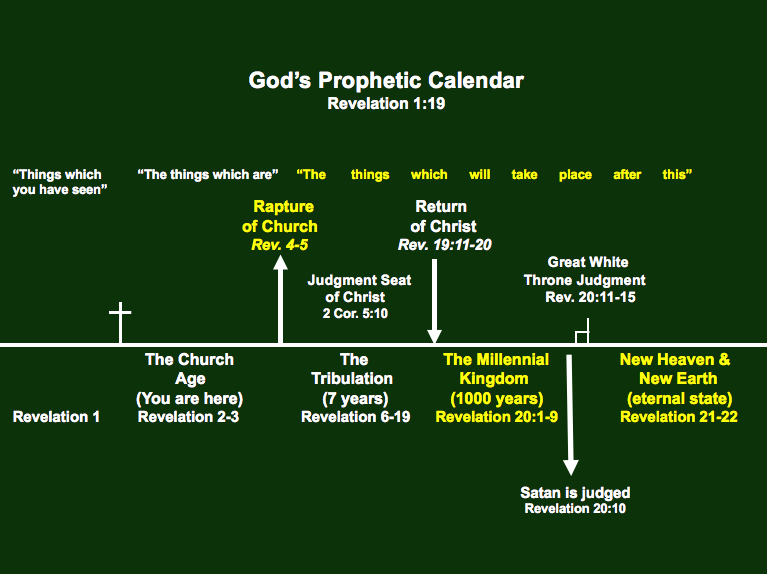“Therefore you now have sorrow; but I will see you again and your heart will rejoice, and your joy no one will take from you.” John 16:22
We are learning from Jesus’ instructions to His eleven believing disciples how Christ can transform our grief into gladness. So far we have discovered He does this when we …
– Ask Christ to help us properly understand His word as it relates to our situation (John 16:16-19).
– Accept that pain and suffering are part of life (John 16:20a; cf. 16:33).
– Assess our circumstances with an eternal perspective (John 16:20b-22).
– Allow our grief to direct us to the Father in prayer (John 16:23-24).
The final way Jesus transforms our grief into gladness is not based on a specific verse in this passage, but on the example of Jesus Christ. Jesus transforms our grief into gladness when we ACQUAINT OURSELVES WITH THE PATTERN OF TRANSFORMED PAIN. This pattern finds its fullest expression in Jesus. He transformed the bad into the good.
Because of Jesus, we can never say about a person, “He or she must be suffering because of some sin he or she committed.” Jesus, who never sinned, also suffered. God never promised that typhoons or twisters will skip over our houses on the way to our non-Christian neighbors or that COVID-19 will flee from our Christian bodies and invade a non-Christian’s body. We are not exempt from tragedies in the world just as God was not exempt. Christ was willing to suffer in order to accomplish a higher goal. He trusted His Father to use His death for good. And God took the worst thing that could happen – the brutal execution of His only Son and turned it into the final victory over sin, death, and the Devil (I Corinthians 15:1-58; Colossians 2:13-15; Hebrews 2:14-15). God turned the design of evil into the service of good, an act that holds in it a promise for all of us.
Because God transformed Jesus’ suffering into good, He can do the same for us. Jesus’ resurrection transformed the pain of His disciples into joy. No trial, illness, unemployment, broken relationships, death of a loved one, or grief extends beyond the range of Jesus’ transforming power. He transforms pain, using it to teach and strengthen us, if we allow it to turn us toward Him.
Childbirth is ironical – an event that causes some of the greatest physical pain, but also opens the doorway to one of life’s greatest joys – new life! Someone once said, “The more grief inflicted upon you, the better fitted you are to appreciate joy. More often than not the so-called negatives are assets. There cannot be a front without a back, an up without a down, a cold without a hot, a love without a hate.”
When speaking of the effects of His own death on His disciples, Jesus compared it to a woman in labor. She travails until the moment of delivery, when suddenly anguish is transformed into ecstasy. Death is like birth – it causes great emotional pain, but in reality, it opens a doorway into the great joy of eternity because of the death and resurrection of Jesus Christ!
Author Philip Yancey writes, “Imagine birth from the perspective of the fetus (unborn baby). Your world is dark, safe, secure. You are bathed in a warm, cushioning liquid. You do nothing for yourself. You are fed automatically, and a murmuring heartbeat assures you that someone larger than you is meeting all your needs. Life consists of simple waiting – you’re not sure what to wait for, but any change seems faraway and scary. You encounter no sharp objects, no pain, no dangers. A fine, serene existence.
“One day you feel a tug. The walls seem to press in. Those soft padded walls are now pulsing, wildly, crushing you downward. Your body is bent double, your limbs twisted and wrenched. You’re falling, upside down. For the first time in your life, you feel pain. You’re in a sea of roiling matter. There is more pressure, almost too intense to bear. Your head is squeezed flat, and you are pushed harder, harder into a dark tunnel. Oh, the pain. Noise. More pressure.
“You hurt all over. You hear a groaning sound and an awful, sudden fear rushes in on you. It is happening – your world is collapsing. You’re sure it’s the end. You see a piercing, blinding light. Cold, rough hands grasp at you, pull you from the tunnel and hold you upside down. A painful slap. Waaaahhhh!
“Congratulations, you have just been born.
“Death is like that. On this end of the birth canal, it seems a scary, dark tunnel we are being sucked forward by an irresistible force. None of us looks forward to it. We’re afraid. It’s full of pressure, pain, darkness… the unknown.
“But beyond the darkness and the pain lies a whole new world outside. When we awaken after death in that bright new world, our tears and hurts will be mere memories.” 1
Perhaps you have lost a love one recently who believed in Jesus or was too young to believe in Him, and your heart is numb with grief. Christ’s resurrection guarantees you will be reunited one day in His presence (I Thessalonians 4:13-18). Knowing this can comfort and sustain you during this dark and painful time. Jesus wants you to take heart because the day is coming when the darkness will be gone forever and your pain will be transformed into endless joy (Revelation 21-22).
Prayer: Lord Jesus, You never promised that suffering would not be part of our lives. In fact, You promised just the opposite if we follow You. But it is not a hopeless kind of suffering. Your resurrection guarantees to all of us who believe in You a hope-filled beginning when we die and go to be with You. A perfect, sinless, world awaits us in Your presence when we take our last breath. Knowing this empowers us to endure the darkness and pain before us with the confidence that something much better and greater lies beyond our time here on earth. Thank You, my Lord and my God, that the hurts and tears we have now will be transformed into endless joy and laughter in the world to come where we will be reunited with You and those who have gone before us. Please help us to lean into You when troubled times come. Your presence can calm our hearts when we surrender to You. In Your hope-filled name I pray. Amen.
ENDNOTE:
1. Philip Yancey, Where Is God When It Hurts? (Grand Rapids: Zondervan, 1990), pp. 258-259.







